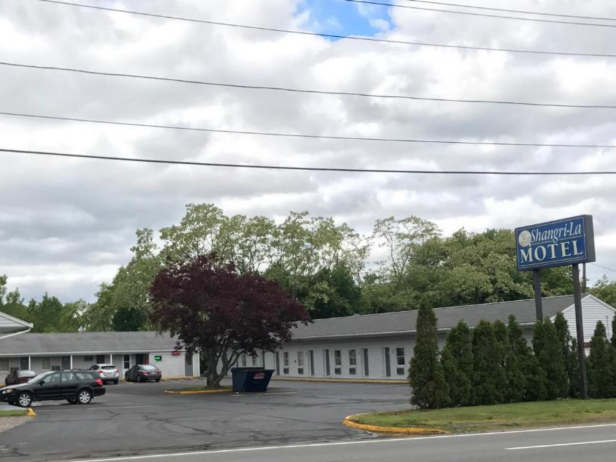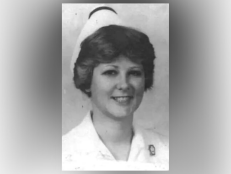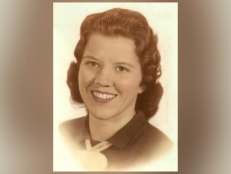Human Trafficking Survivor Alleges Motel Was Complicit In Repeated Rapes
A trafficking survivor settled out of court after she sued a motel for allegedly turning a blind eye and facilitating repeated rapes while she was held captive. The case may have laid the legal groundwork for other trafficking victims to hold motels accountable for complicity.

Shangri-La Motel in Seekok, Massachusetts [via Shangri-La Motel website]

Lisa Ricchio was just trying to help a friend when she traveled from Maine to Massachusetts in 2011.
According to court documents from the civil suit’s 2015 filing, Clark McLean told Ricchio he was in pain after surgery and needed help. When the two checked into the Shangri-La Motel in Seekonk, Mass., McClean reportedly began physically and sexually assaulting Ricchio and took her car, cell phone, and driver’s license. He allegedly kept her from eating, drugged her, and threatened her family. After a number of days, he forced her into prostitution.
The motel was liable, the suit claimed, because Ricchio reached out to the hotel owners for help several times, and they declined to intervene despite seeing McClean physically assaulting her, the suit said. The suit went on to allege that McClean, and one of the hotel owners, openly spoke about how they could make money together. The hotel also benefited financially because McClean was paying for the room where Ricchio was trafficked.
It was the first suit filed against a motel for its role in a human trafficking situation, according to an article from NPR. Ricchio’s case was ultimately settled out of court for an undetermined amount of money.
Lisa Ricchio was held against her will for several days in a Massachusetts hotel.
— NPR (@NPR) February 20, 2020
Legal experts and anti-trafficking groups say her 2015 case was the first filed against a hotel or motel for its role in a trafficking crime. https://t.co/cW77wY11OR
That same NPR report goes on to say that other human trafficking survivors have now sued other motel chains such as Hilton, Marriott, and Red Roof Inn.
How the Hospitality Industry is Fighting Human Trafficking
The American Hotel and Lodging Association offers a “No Room for Trafficking” program to help hotel and hospitality staff act quickly if they suspect human trafficking in their facilities.
Its five-point plan includes teaching staff members to spot the signs of trafficking and who to call, placing signage around the facility with information about trafficking, establishing company-wide policies on what to do if an employee suspects trafficking, coordinating with law enforcement, and sharing success stories.
How you can help
According to the National Human Trafficking Hotline, these are the steps you can take to save the life of yourself or someone else:
- If you or someone you know is in immediate danger, call 911.
- Call the National Human Trafficking Hotline toll-free hotline at 1-888-373-7888: Anti-Trafficking Hotline Advocates are available 24/7 to take reports of potential human trafficking.
- Text the National Human Trafficking Hotline at 233733. Message and data rates may apply.
- Chat with the National Human Trafficking Hotline via www.humantraffickinghotline.org/chat
- Submit a tip online through the anonymous online reporting form here www.humantraffickinghotline.org/report-trafficking. However, please note that if the situation is urgent or occurred within the last 24 hours, you should call, text, or chat.



![Hannah Graham [left] was found murdered on Sept 24, 2014; Morgan Dana Harrington [right] was found in January 2010. DNA has linked the two murders to Jesse Matthew Jr.](http://investigationdiscovery.sndimg.com/content/dam/images/investigationdiscovery/crimefeed/legacy/2022/09/charlottesville-police-department-hannah-graham-virginia-state-police-morgan-dana-harrington-09082022.png.rend.hgtvcom.231.174.suffix/1662659468172.png)





